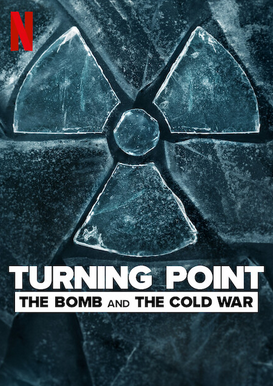Recommending Turning Point: The Bomb and the Cold War
My father and I have been watching the new Netflix series Turning Point: The Bomb and the Cold War. Dad is 91 and lives in Maine; I’m 63 and live in San Francisco, so we would arrange daily calls to compare notes on each episode.
Excuse me for a quick commercial break: we have two talented editors available soon!
Dad and I were impressed with this documentary’s unbiased reporting of Soviet and American relations. For me, it fairly framed the Russian side of the story, for example, Putin’s deep humiliation when the Berlin wall went down. I had no idea! But I was reminded of Hitler’s simmering humiliation after World War I, which led to World War II.
But more than that, from a storytelling POV, the editorial team did a stellar job using what I call “The 3-part Introduction Convention”.
Think of a documentary opening in three parts: the pre-title footage, the title, and the post-title footage. The convention mandates that the first part, the footage before the title, looks remarkably different than the footage after the title.
Why? This gives your documentary the advantage of a fresh approach after the title, as well as more opportunities to get your unique storytelling “grammar” off the ground. For example, if you start with performance footage and narration, then after the title you might open with soundbites, or vérité footage, or archival footage.
In Turning Point: The Bomb and the Cold War, the editors began each episode (part 1) with contemporary footage of the war in Ukraine. After the beautifully rendered title sequence (part 2), the story (part 3) of the two superpowers begins chronologically over 9 episodes. In addition to launching the series’ “storytelling grammar”, this 3-part convention plants the subtext: that today’s war in Ukraine had a long, causative history. The late Daniel Ellsberg (of the Pentagon Papers fame) reveals secrets and detailed stories.
I hope you check it out! It turns out that my father, a vet, had a much better grasp of American history than his highly educated daughter. It made my parental phone calls more frequent and fun!
